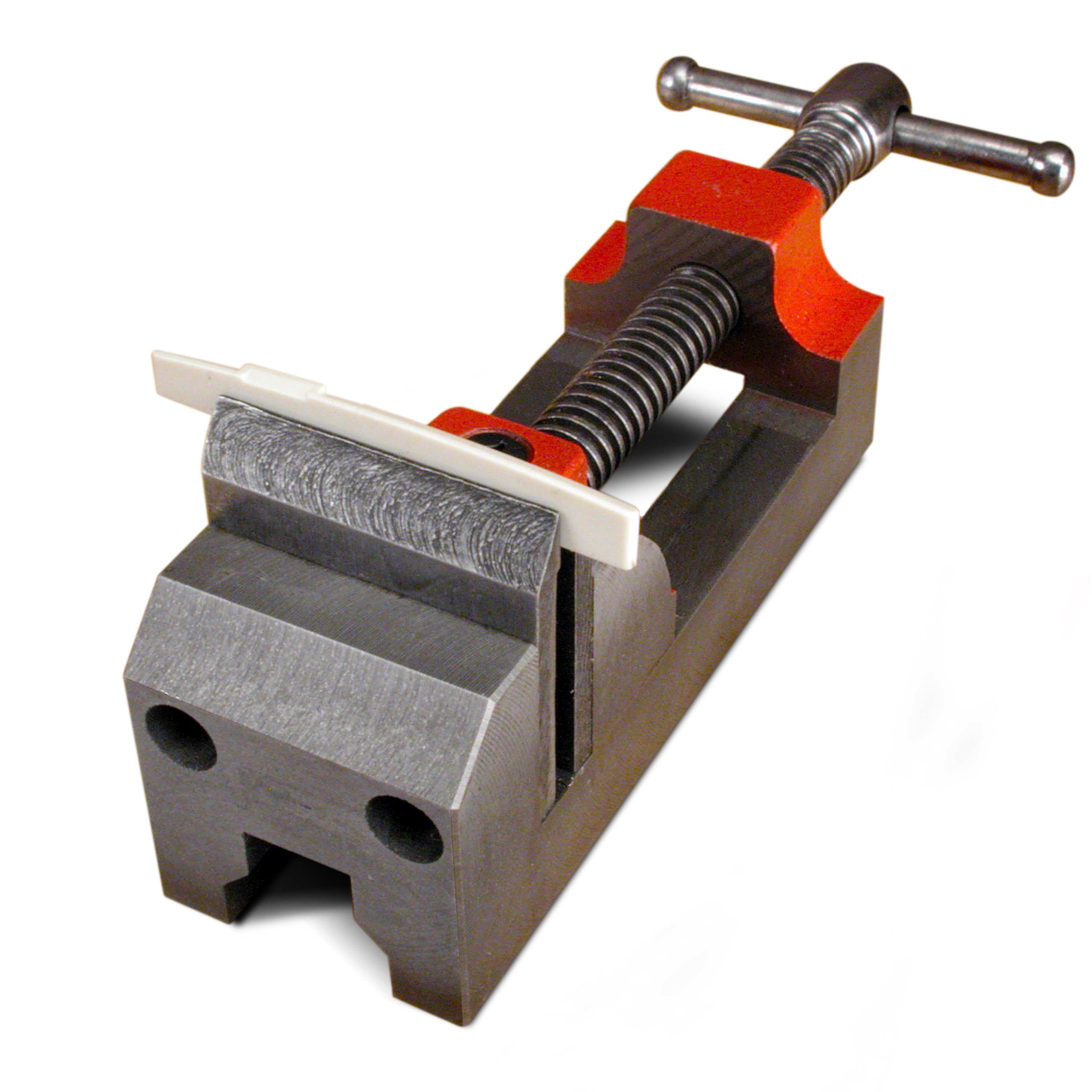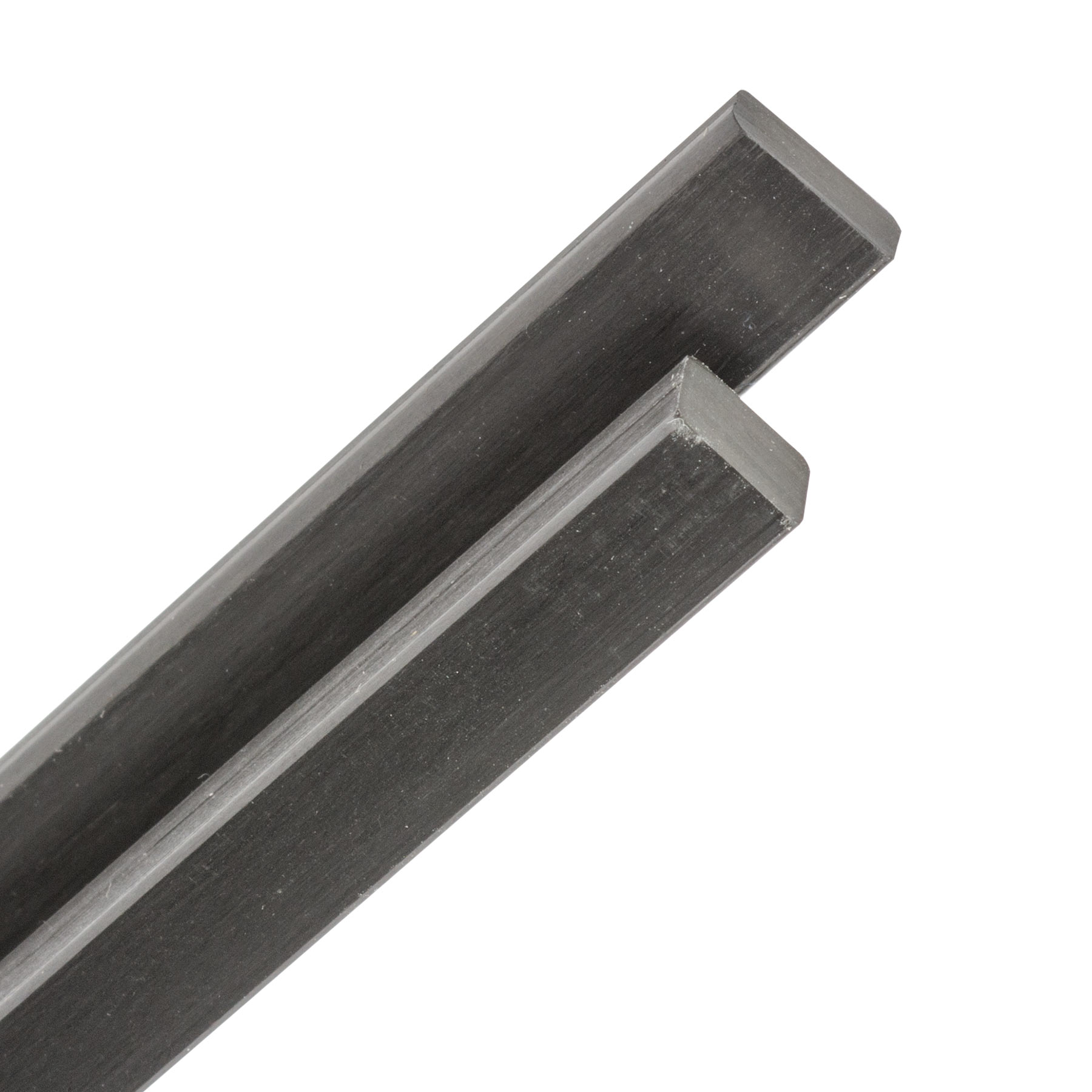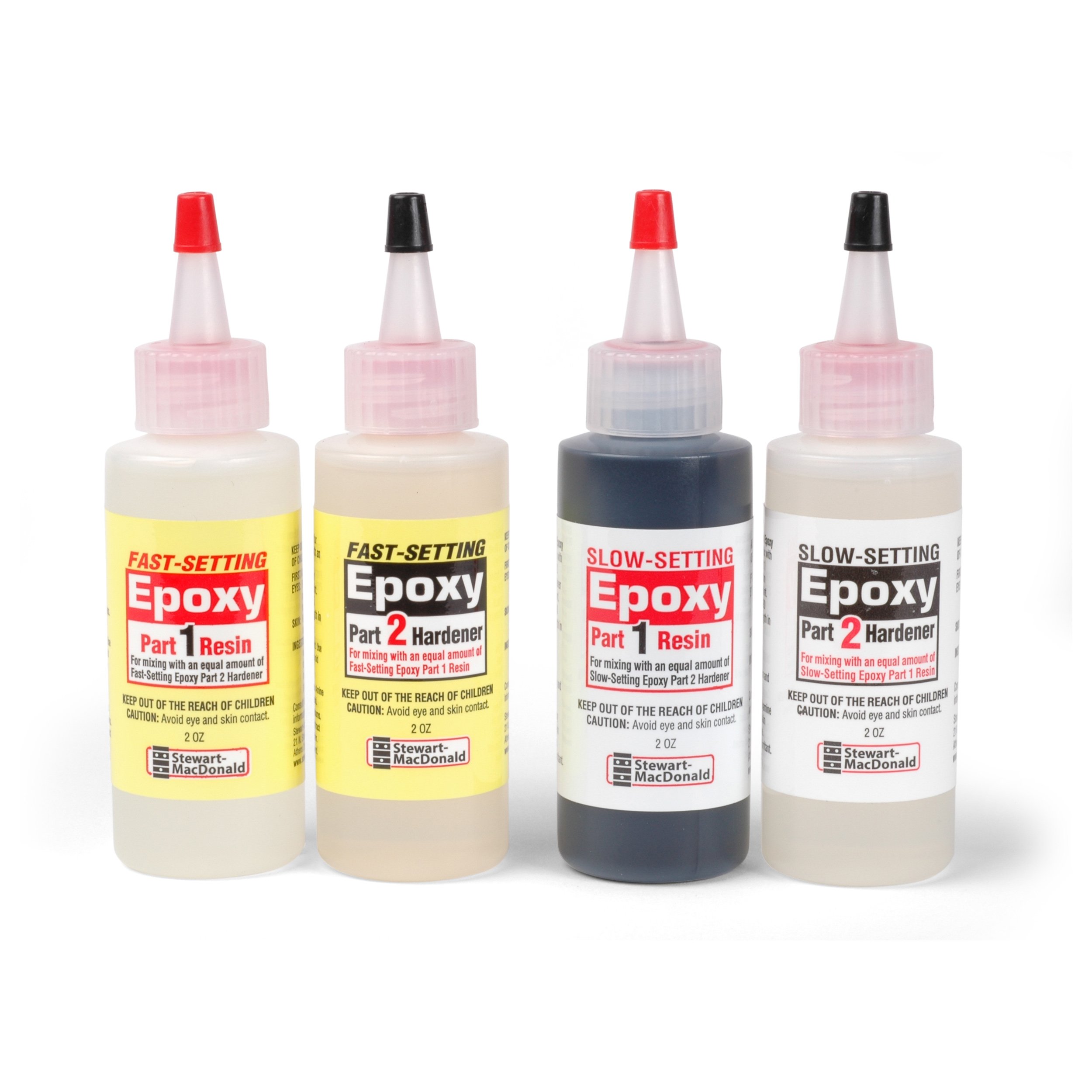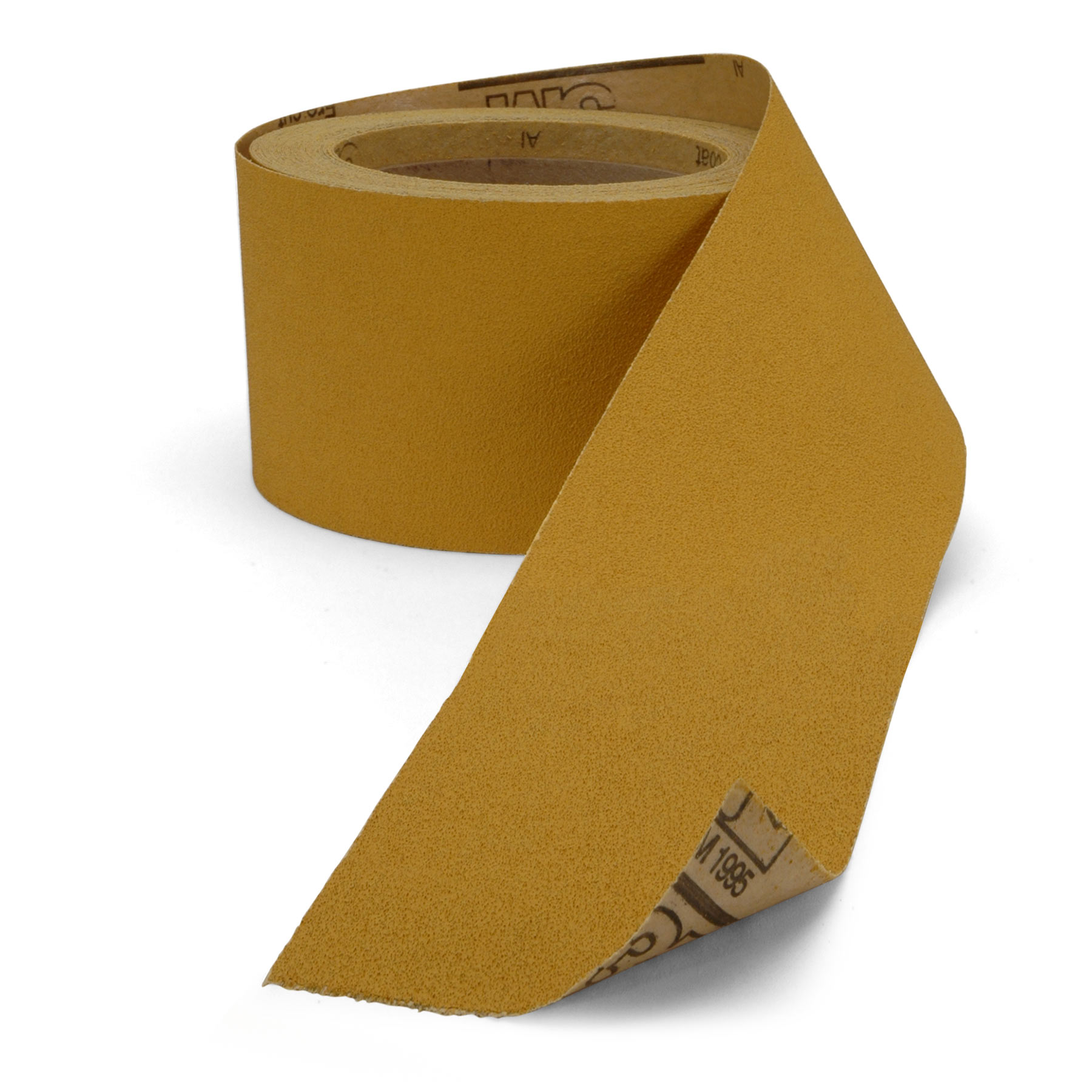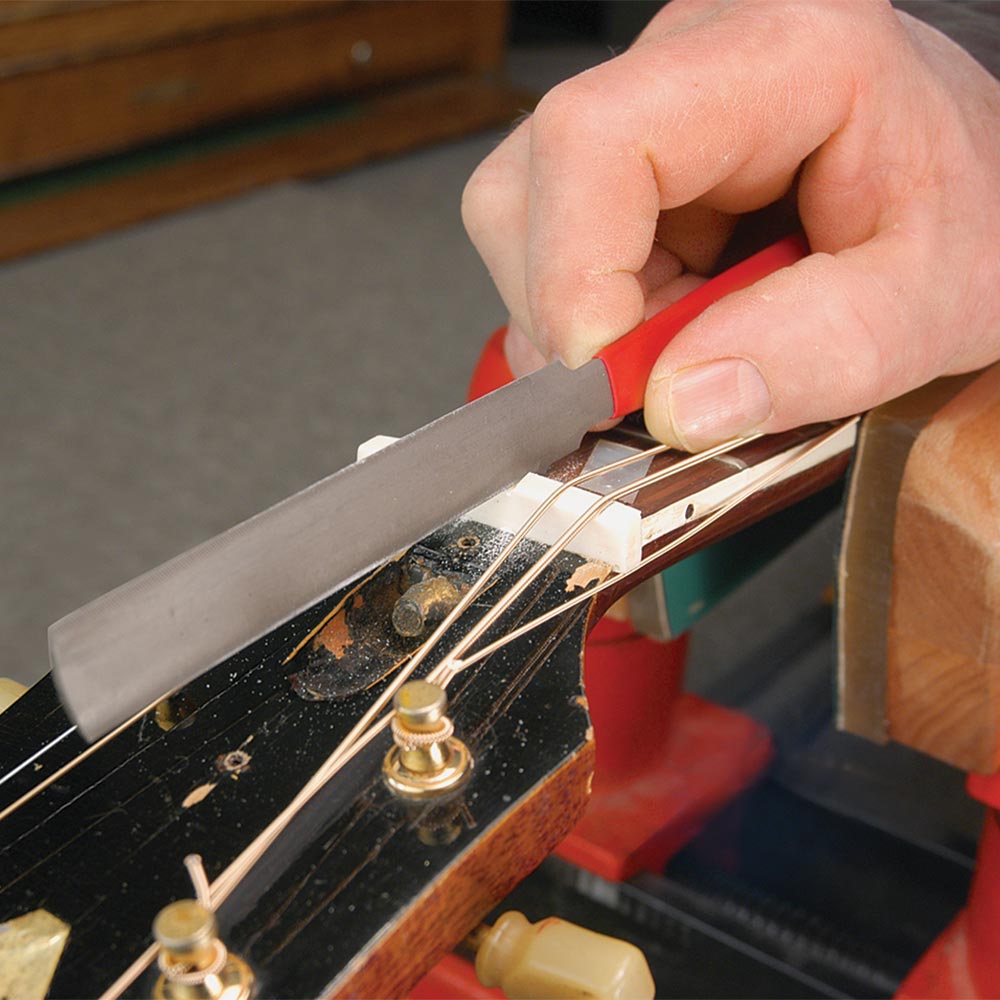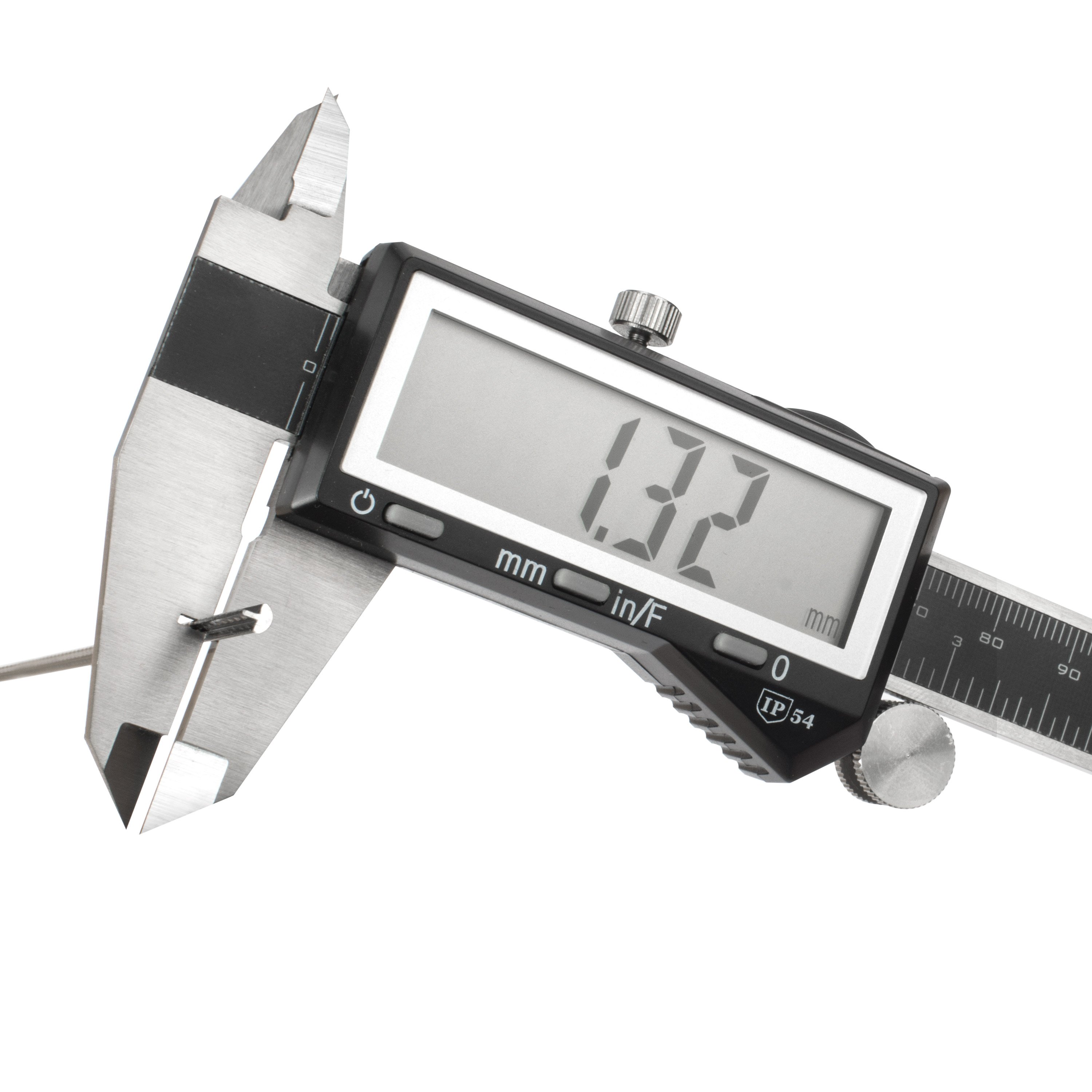Fixing Bill Kirchen's "Hot Rod Lincoln" Telecaster
Bill Kirchen’s high-speed Telecaster was the jet fuel driving Commander Cody’s Hot Rod Lincoln into the Top Ten back in 1972. These days Bill travels a lot with his trio, Too Much Fun. Life on the road is what brought his guitar into my shop, with damage caused by a bang on the peghead. Bill bought this guitar from me about a year ago. I’d built the body for myself in 1986 using Catalpa, a local wood here in southeast Ohio. It’s an extremely light wood, with great tone — sort of an Appalachian version of good ol’ swamp ash. Catalpa’s not very strong, though. I installed a baritone neck made for me by Fred Stuart at Fender’s custom shop, creating a Bajo Sexto version of a Tele. I must have fit the neck too tightly, because cracks developed in the wood between the end of the neck pocket and the neck pickup cavity. I removed the loose piece, re-glued it, and forgot about it. I went to see Too Much Fun perform last week. Talking with Bill after the show, I looked at the guitar. A bent tuner on the peghead told me the neck had taken a hard hit, and it broke my old repair loose! A new tuner was easy to install, but I had to fix the body for real this time. Regluing the soft catalpa isn't the solution: it’s time to add some real strength. You can see the split wood at both sides of the neck. By the way, this aged-looking body was my first attempt at faking a “relic” finish, and I was pleased with the results. The broken chunk lifted right out. I didn’t re-glue it, deciding to make a replacement piece instead. I routed a 5/16" deep recess running from the neck cavity into the pickup cavity (left). The replacement piece is made from ash laminated with carbon fiber neck rods (stacked on top of each other at the thickest point). This plug was glued with slow-cure epoxy
Hot Rod Lincoln Body Shop



Here’s the damage.
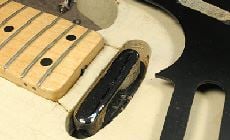
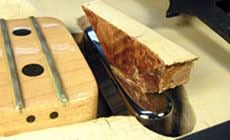
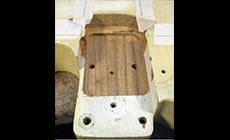
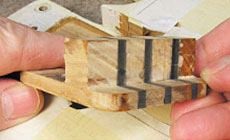
I left the neck pocket wall extra wide, to be machined to its final dimension after the plug is glued in place.
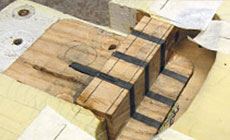
A router would do a fine job of trimming the plug to size, but I used my 25-year-old mill-drill.
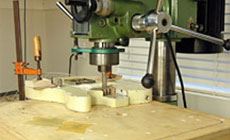
Extra strength.
I “stitched” the plug to the body by inlaying carbon fiber pieces at each end of the the plug for extra strength. Digital calipers told me the carbon fiber was .125" thick. The slot, which I routed with a 1/8 " bit, was too snug for it however.
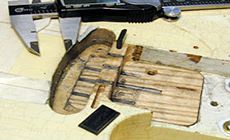
To improve the fit, I sanded the carbon pieces with 220-grit Stikit sandpaper stuck to a flat surface. Now the plugs fit perfectly, but there has to be some channel for wet glue to escape or hydraulic pressure won't let me press the pieces home.
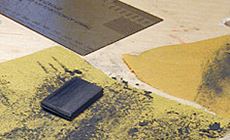
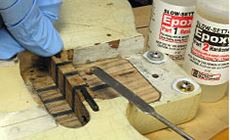
A groove filed into the end of each plug solved the problem, creating the channel for glue and air to squeeze out.
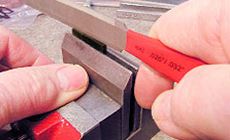
I let the plugs dry overnight. The carbon-reinforcement makes this repair tough enough to survive even another Hot Rod Lincoln crash.
Apply a finish, or not?
A quick wipe-on coat of shellac would complete this job, since it's hidden beneath the Tele’s black pickguard. But I've decided to get out my finish touch-up kit and hide this repair with some matching Fender blonde lacquer. I'll take pictures as I do that, and it’ll be my next Trade Secrets story.
Meanwhile, here's another short tale about this Tele: For years, Bill Kirchen has broken down his guitar when traveling, removing the neck so it and the body can be packed into a small case. Arriving at the gig, he fastens the neck back on, tunes up and walks onstage. That’s a lot of wear and tear on the holes receiving the neck mounting bolts, so while I had the guitar in my shop I installed threaded metal bushings in the neck. I took pictures of that modification, and posted them in this Facebook photo album:



